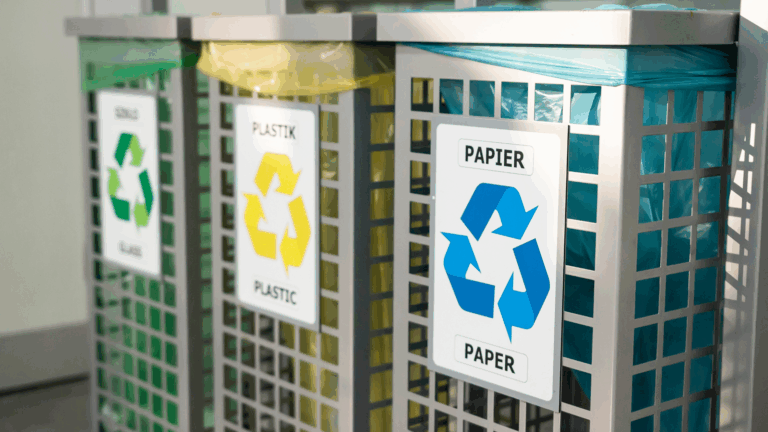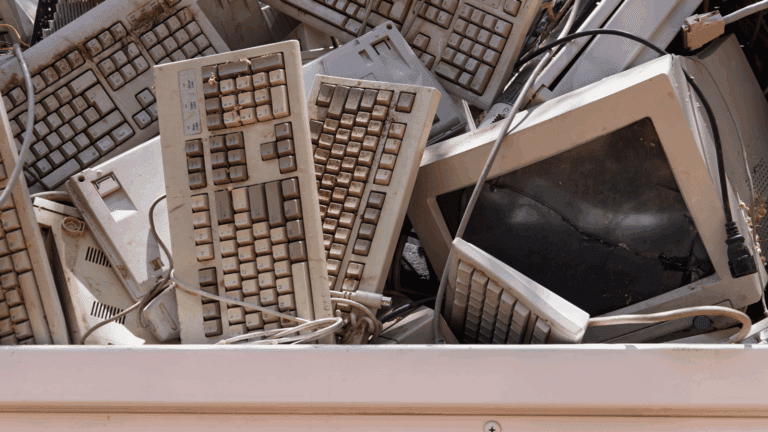
We’ve all been there – painstakingly sorting our recycling into several bins only to quip “it probably all ends up in landfill anyway”. The truth is that recycling centres work hard to process all the materials you have been good enough to sort and separate into their designated bins. But in order to raise standards for recycling it requires everyone to do their bit.
In this article, we take a closer look at the journey from your recycling bin to fully recycled status. So, what does it take to collect, sort and process your business recyclables?
Collection
The best waste management companies deliver a complete solution, and this includes the collection and transportation of your business waste. How recyclables are initially sorted and collected varies from region to region. Business recyclables however are often separated into categories like paper, glass, plastic and metal to make life (and sorting and processing) much simpler for all.
You can personalise how your waste is organised by type and volume, as well as define the collection frequency that works for your business, when recruiting your chosen waste management service.

Manual sorting
Once your recyclables have been collected and transported to your nearest recycling centre, they are weighed and recorded before undergoing initial sorting.
It is during this process where large, identifiable and/or contaminated items are dealt with manually. Most recycling centres also remove distinguishable non-recyclables at this stage to boost efficiency during automated sorting.
Automated sorting
Technology plays a vital role in the sorting of recyclables at every recycling centre, with the automation of this process aiding efficiency no end up and down the country. Devices such as optical scanners, eddy current separators, magnetic separators and air classifiers are used to identify and sort specific materials. This includes plastic, non-ferrous and ferrous metals, paper and cardboard, and glass.
Processing
Once sorted, materials are processed, with the method used to prepare them for compacting and baling varying from material to material. Paper for instance is pulped, plastics shredded and melted, metals crushed and melted, and glass cleaned and crushed before being baled and prepared for transport.
Quality control
Before these processed materials complete their onward journey to their new homes at specialist factories to be made into new items, they must pass stringent quality control tests.
Unfortunately, contamination is a very real problem, which can reduce the quality of recycling. Recycling centres take measures to control and eliminate contamination during initial sorting. Incorrectly placed items can clog and damage automated machinery as well as prevent processed materials from being resold and reused later down the line. Contaminants that can be recycled are distributed to the appropriate facility for processing, while those that can’t are sent to landfill.
By putting quality first at every turn, including during this latter stage, recycled materials can fetch higher prices as well as abide to local and national regulations.

Contact Everflow today!
At Everflow, our goal is to make your utilities simpler. We ensure you get great-value contracts that are tailored to your needs and easy to manage.


